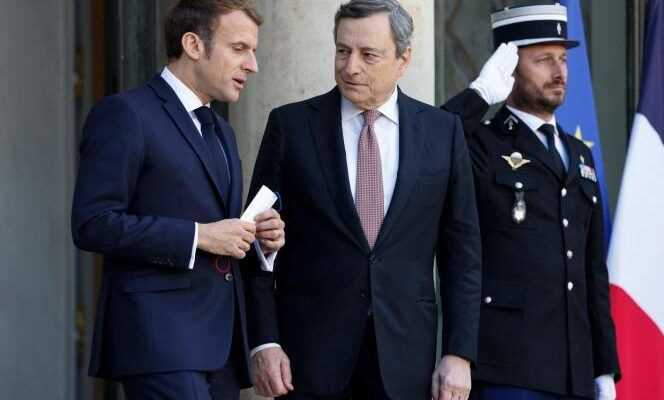Power in Rome is never without mystery. It is therefore not surprising that the Quirinal Palace is one of the most secret places in the city. This former home of the popes and kings of Italy, built at the top of a hill, naturally became the residence of the presidents, with the establishment of the Republic (1946). Inside his thick walls, the Head of State plays his role, above all formal, not without exerting behind the scenes a power that is difficult to quantify – the current occupant, Sergio Mattarella, is so discreet that we suppose his influence immense.
The Quirinal is not the center of Italian political life. It is there, on the other hand, that all crises are resolved, and that the most solemn ceremonies are held. Friday, November 26, at 9 a.m., Italian President Mario Draghi and French President Emmanuel Macron are due to sign an unprecedented bilateral treaty.
If we stick to the institutional logic, the choice of this place has something incongruous. Indeed, treaties fall under the prerogatives of the President of the Council and not of the Head of State. But it was to demonstrate that the Franco-Italian relationship is just as close as the Franco-German, consecrated in 1963 by the Elysée Treaty. Thus, from one palace to another, the choice of the Quirinal was imposed, to push the parallel as much as possible.
The disagreement over Fincantieri
Will this symbol be enough to establish the idea of a Franco-Italian duo as solid as the Franco-German axis? “The Elysée Treaty has been in existence for more than half a century, and it devoted a long reconciliation process. But even if Paris and Rome sometimes experienced strong tensions, the two countries were enemies for only a few days in June 1940 ”, relativizes a French diplomat.
Paris and Rome have never – or almost never – been at war, it is a fact. But over the course of a century and a half of history, the relationship between the two countries has been anything but linear, and certain points of friction beg to reappear at the slightest opportunity. French President Emmanuel Macron has bitterly experienced the pitfalls of this much more complex relationship than it seems.
Everything had started off pretty well. Under 40, pro-European, the president elected in May 2017 does not hide his love for the bel paese, and goes so far as to take as cultural advisor an Italian, Claudia Ferrazzi. Logically, his arrival was welcomed very favorably by the Italian government of the time, led by Paolo Gentiloni (PD, center left).
You have 66.02% of this article to read. The rest is for subscribers only.
